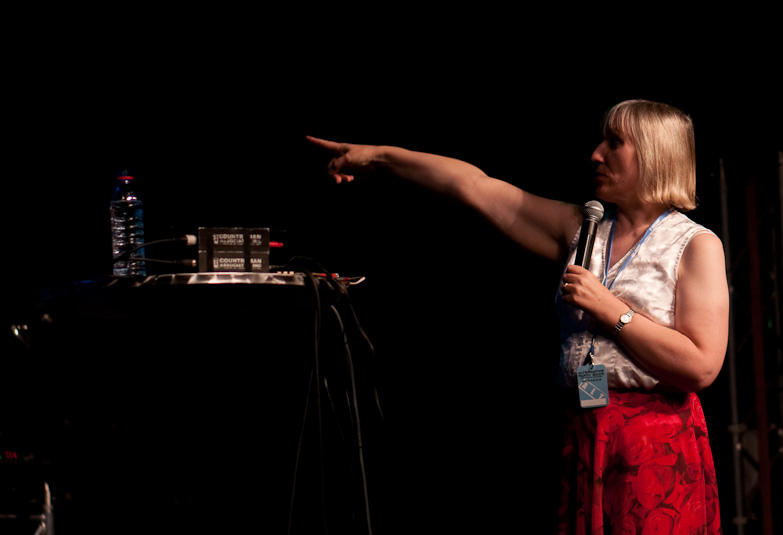From a small Acorn to 37 billion chips: ARM's ascent to tech superpower
We talk to Sophie Wilson, inventor of the ARM instruction set
"Anyway sometime in late 1996, John Redford [now head of UK engineering for Broadcom] found out what I was doing." The pair founded a new company - Element 14.
If Element 14 sounds familiar to you, it isn't the company of the same name behind the Raspberry Pi.
Wilson's Element 14 was spun out of Acorn in 1999 and clearly Broadcom knew the potential - Element 14 was sold just under two years after founding for a huge £366 million (US$356 million, AU$607 million).
Wilson on tablets - and Windows 8
Finishing up our chat, we ask Wilson what devices she uses on a day-to-day basis - but the result was some surprisingly forthright opinions on Microsoft's operating system woes.
"I use whatever does the job. I have an iPad, an Android powered Sony Xperia phone with Ice Cream Sandwich. I also have machines running Windows XP and Windows 7." Has she tried Windows 8 yet? "I have tried Windows 8. I have machines running Windows 7…"
"For machines without a touchscreen [Windows 8 is] a disaster. But they [Microsoft] have a history of violating usability guidelines. There's a whole subsection of the computer community for the usability of computer interfaces and they know precisely what makes things good, and Microsoft just ignore them.
"The [Microsoft Office] ribbon in particular is crazy from a usability viewpoint. One nice thing that's happened with the ribbon is that Microsoft have gradually been reliant on the right-click pop-up menus that we had in RISC OS, and that is straight out of the usability manuals.
Sign up to the TechRadar Pro newsletter to get all the top news, opinion, features and guidance your business needs to succeed!
"You don't have to do a great deal of research to develop that stuff, you just have to read a usability manual. It says you [need to travel] the shortest possible distance to [do something].
Acorn RISC OS machines had a three button mouse with a middle "menu" button, so we asked Wilson if usability was the key driver behind this. "Yes, so we said right, we'll dedicate a button to it. Press the button and you get a context-sensitive context menu. The more control and non-modality of your interfaces, that meant more input buttons.
"Xerox had used a three button mouse before us, so we developed RISC OS around a three button mouse. It gives you more actions. There was a massive amount of acceleration from that, and the fact the system was so fast. One button [as Apple used] introduces a lot of modality into your interface."

As one of the key figures behind the chips inside them, we ask Wilson whether she feels tablets can replace PCs as devices for content creation as well as content consumption. Again, she puts forward some strong views and, interestingly, highlights Microsoft's key problem with trying to break into the tablet market: "It's the person who's creating, not the device."
"You may wish that a tablet was better at some things but there are many excellent [apps] for them. They're so cheap compared with a computer, so light, so easy to use.
"I don't think that popularity is going to go away no matter what the Windows team does - their prime problem is to produce hardware and software that persuades business to move away from Windows XP and Windows 7. Windows 8 has a long way to go."
Now check out 30 years on, the Spectrum's DNA is everywhere in tech
Dan (Twitter, Google+) is TechRadar's Former Deputy Editor and is now in charge at our sister site T3.com. Covering all things computing, internet and mobile he's a seasoned regular at major tech shows such as CES, IFA and Mobile World Congress. Dan has also been a tech expert for many outlets including BBC Radio 4, 5Live and the World Service, The Sun and ITV News.